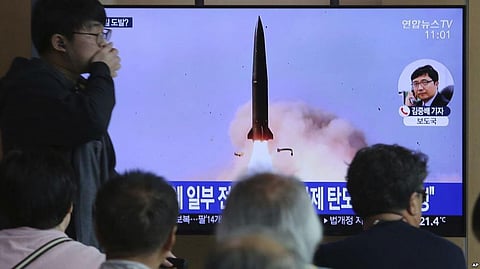North Korea's leader Kim Jong Un supervises a "strike drill" for multiple launchers and tactical guided weapon into the East Sea during a military drill, May 4, 2019. VOA
Testing US limits
After that launch, analysts said they expected North Korea to continue to test weapons as a show of frustration at the stalled nuclear talks.
"The North Koreans are testing the U.S. response. They're trying to find out where the ceiling is, in terms of U.S. tolerance for provocations," said Scott Snyder at the Council on Foreign Relations. "It would appear that following these tests that the North Koreans may decide that they haven't hit the ceiling."
ALSO READ: US Increased Tariffs on Chinese Imports go Into Effect, China to Take "Necessary Countermeasures"
For a year, Trump has said talks with Kim are progressing. As evidence, he cited a lack of nuclear and missile tests. Trump responded cautiously to the Saturday launch, saying he still believes Kim is open to a deal.
Kim wants the U.S. to relax sanctions in exchange for steps to dismantle his nuclear program. Trump says he will not ease sanctions until Kim commits to abandoning his whole nuclear arsenal. (VOA)


